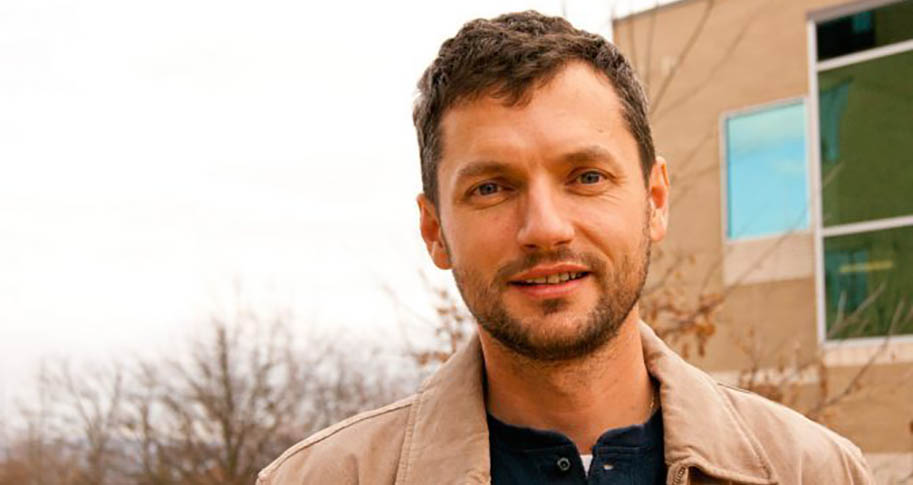
Peter Katuscak researches around the globe as he examines the behaviors of auction bidders or how people perceive their tax situations. For the 2014-15 school year, he is a visiting assistant professor with the Department of Economics at the Sam M. Walton College of Business, where he teaches microeconomic theory to undergraduates.
Originally from Kosice, Slovakia, Katuscak has already lived in the United States for more than seven years. This includes Ann Arbor, where he earned his Ph.D. in economics at the University of Michigan and San Diego, where he worked as a visiting assistant professor during the 2005-2006 school year.
Always on the move, he jokes that he lives out of two suitcases. Katuscak says when it was time for him to come to the Walton College in August 2014, he had no time to spare. He was in Prague, organizing a conference, and then flew in to Northwest Arkansas and taught his first class the same day he arrived.
Before coming to the University of Arkansas, he was a faculty member at the Center for Economic Research and Graduate Education – Economic Institute (CERGE-EI) in Prague. Katuscak came to Fayetteville on the invitation of Cary Deck, Walton College economics professor, whom he knew from his teaching visits to Prague, Bratislava and various experimental economics conferences.
“I enjoy a family-like atmosphere of the department and the college.”
Katuscak’s research as an experimental economist involves testing theories and looking at causes of economic behavior using human volunteers in a lab. “We try to see how people react to different incentives and information, hoping to learn how to improve design of market mechanisms such as auctions.” he says.
His work on auctions has touched on topics such as learning from historical feedback, anticipation of future feedback, reaction to lacking knowledge about other bidders, but also issues such as differences in bidding behaviors between males and females.
One other area Katuscak is researching is how people perceive their tax rates. In particular, he is interested in whether taxpayers confuse their average tax rate for their marginal tax rate. If this is so, then taxpayers might end up reacting to tax system elements such as tax refunds or tax credits that have so far been thought of as not being important for marginal incentives to work more hours or look for a higher-paying job.
Katuscak’s research has been published in Games and Economic Behavior, Journal of Economic Theory, Journal of Human Resources and CESifo Economic Studies. He earned his bachelor’s and master’s degrees at Comenius University in Bratislava, Slovakia, and another master’s degree from the Central European University in Budapest.
In the classroom, Katuscak likes to challenge his students. “What I’m discovering is that these kids are smart and talented, but they need to be pushed,” he says.
Katuscak says he’s enjoying his time at the Walton College, which, through the university’s various support systems, allows him to focus on his teaching and research. He says he finds his colleagues collegial and friendly. “I enjoy a family-like atmosphere of the department and the college,” he says.




